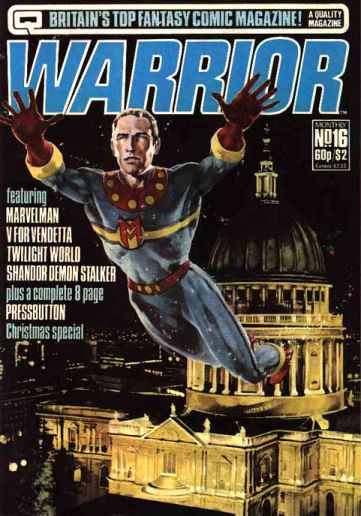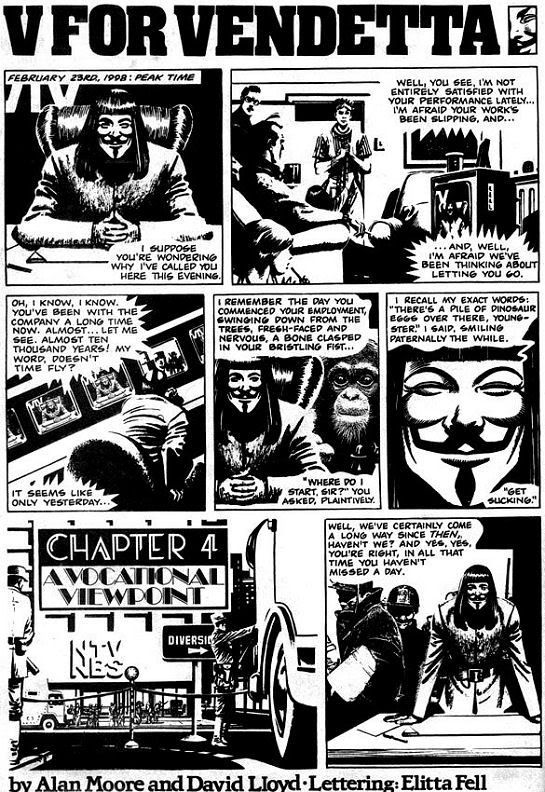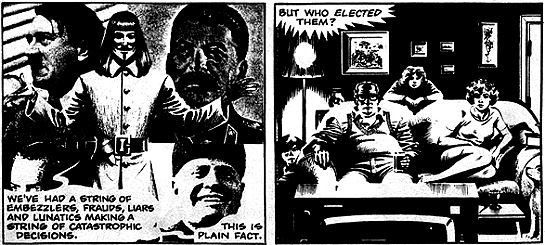
Are you sitting comfortably? Then I’ll begin…
I was 13 years old, Christmas was coming, my six year love affair with 2000AD was over and I guess I bought this copy of Warrior because I was still trying to fill the hole left by my weekly fix of 2000AD zarjaz.
I have no recollection of the rest of the content of the comic, I certainly couldn’t give a monkeys about the bloke on the cover, all I remember, all that matters was that it contained an extremely strange and disturbing comic strip that was like nothing I had ever seen in comics before – or since. It was called V for Vendetta:

In the strip a character (was he masked or was that his face?) was delivering a televised speech to the people of Britain. With black and penetrating metaphoric humour (that seemed to be mirrored in the artwork) he chastises the people of Great Britain for their ‘poor performance’ on the ‘shop floor’ and their propensity to blame everything on ‘the people in charge’:

A lot of people interested in comics have read V for Vendetta, but (no) thanks to the cinematic version, a lot of people saw the film and didn’t bother. But the speech in the film is completely different to the original of the comic.
In the comic V's speech is comics as literature. Prose as rich and powerful as that of Joseph Hellers ‘Catch 22’, Kurt Vonneguts ‘Slaughterhouse 5’ or Ken Keseys ‘One Flew Over the Cuckoos Nest’, the kinds of books I was discovering at the time. But unlike those American novels, there was something particularly British about this comic strip. Not even 'English' which suggest a formality, the ruling classes, but British. Working class. Politically working class. It's the difference between, say, Charlie Chaplin and Harold Lloyd. In the same way that all comics have a cultural nuance, V for Vendetta had not only a British slant, it had a seriously British slant. It was the first ‘serious’ comic I ever saw. The first comic I ever read that was clearly trying to say something, something very important. It showed me another side of what comics can do. It showed me that politics was not just the domain of the News. I would take me a great many years to work out what to do with that knowledge but looking back now, there was the seed.
And then, at the end of the strip, armed soldiers burst in to the television studio the character has locked himself in, and shoot him, it, dead. He dies! He what!?
I bought the next couple of issues of Warrior looking to find out what the hell was going on but they didn’t seem to explain anything. It was only years later when someone lent me the whole graphic novel that any of it made any sense whatsoever.
Except for that speech.
It’s message wasn’t lost on me then and it stayed with me like all the best writing does and re-reading it, it seems as pertinent now as ever. These are worrying times. Feelings of political apathy and powerless prevail. V reminds us that the model that created such conditions, is of our own choosing.
Paul O' Connell, Cartoonist

No comments:
Post a Comment